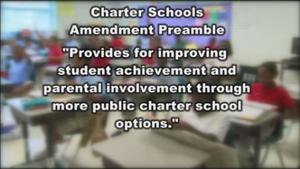Here’s another potential charter school referendum that BallotPedia doesn’t seem to have caught yet, in New Jersey.
John Mooney wrote for NJ Spotlight 3 February 2012, Assembly Committee Votes to Put Charters Under Local Control: Bill calls for local referendum on any school that wants to be granted a charter in a NJ district,
The Assembly education committee yesterday moved a bill that would
give local voters the right to approve new charters in their home districts. If passed by both houses, the law would make New Jersey only the third state to require charter schools to face a local referendum.
First proposed last year, the new bill has been toughened for the new session. Amendments filed with the bill would make those referendums retroactive for as many as 30 urban and suburban schools awaiting their final charters.
The votes would come after the state’s preliminary approval, but often as much as a year can lapse before the final charter is granted and a school can open.
NJ bill A1877 seems to have gotten stuck in the NJ state Senate Education Committee back in May. It has 21 sponsors, starting with Patrick Diegnan (D-Middlesex), shown in the picture above.
Related bill A2147 got as far as a second reading in the Assembly in February.
Charter schools in Georgia already have to be approved by local school boards. Let’s not give up that local control. Vote No on the charter school referendum in November.
-jsq














